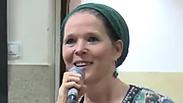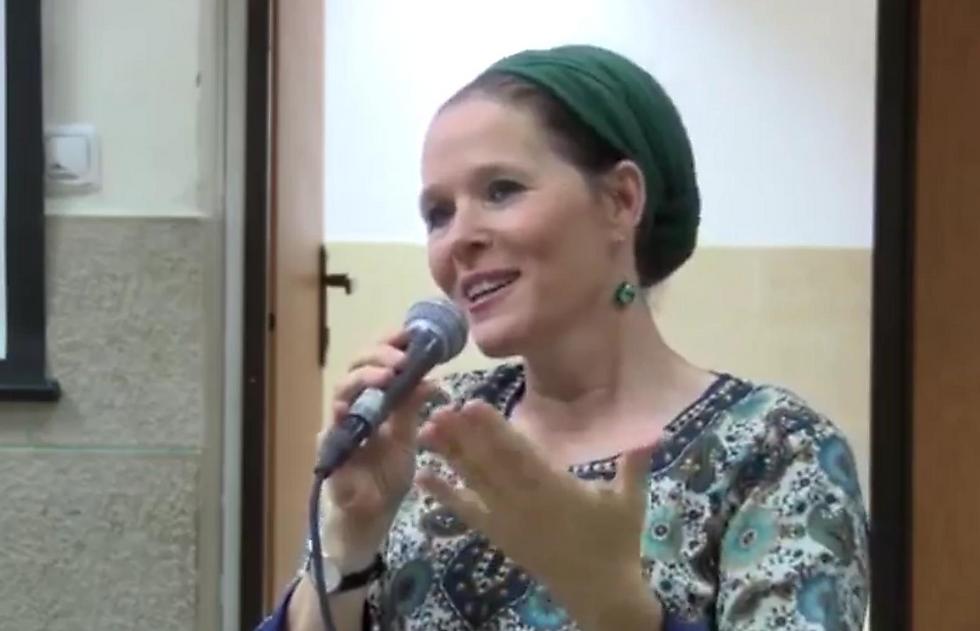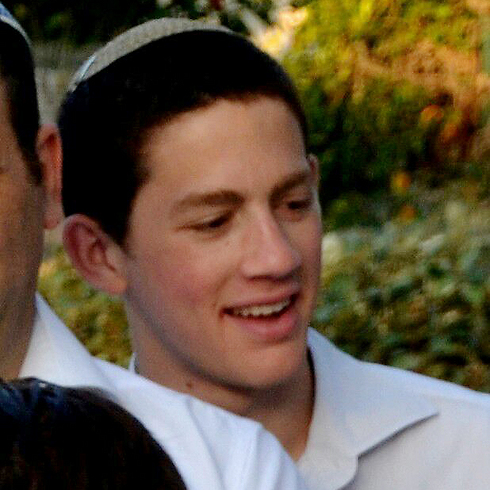

Bereaved Israeli mother to testify in US: 'Iran and Syria murdered my boy'
Rachel Frenkel, whose son Naftali was kidnapped and murdered along with two of his friends in 2014, is suing Syria and Iran through the US court for allegedly supplying money to the terrorists who carried out the attack; she is seeking damages in the amount of $340 million; the three boys' murders ignited a widespread search and retaliation from Israeli security forces, which eventually morphed in Operation Protective Edge.
Two and a half years after the kidnapping and murder of three Israeli teenage boys, their case is set to appear before a federal judge in Washington. Naftali's mother, Rachel Frenkel, will take the witness stand on Tuesday and detail for the court that events leading up to her son's murder, in addition to the murders of his two friends, Eyal Yifrach, Gilprote-Ad Shaer. Israel's response to the kidnapping and murders and its subsequent firing at Gaza eventually became Operation Protective Edge.
Frenkel will appear in court as part of a lawsuit filed through the US justice system against Iran and Syria, which accuses both countries of supporting acts of terrorism carried out by Hamas operatives. The plaintiffs are asking the court to order Syria and Iran to pay $340 million in damages.
The lawsuit was made possible since Naftali was a US citizen. In her letter to the court, Frenkel said she is horrified at the thought of the fear that her son endured after he realized he had been kidnapped, and what he thought the moment he was shot.
In addition to Frenkel's letter and testimony in court, the federal proceedings will also include intel that reportedly proves that Iran and Syria directly funded the three boys' kidnapping, through a NIS 220,000 payment, laundered through a would-be charity organization called "Al-Nour," which operates in the Gaza Strip. An Israeli agent and former CIA agent will also testify in court.
The plaintiffs and the witnesses they will call to the stand aim to detail exactly how the kidnapping was planned, the funding the terrorists needed was raised, will include the first failed attempts to kidnap Israelis and ultimately the boys' kidnapping, murder and hiding of the bodies. The IDF's search efforts for the boys will also be described, up until their bodies were discovered and the murderers were found and killed, three months later.
If she wins her case, Frenkel will not be the first to do so using an indirect legal system. Another such case was a lawsuit filed by six-year-old Shira Leibowitz, who won hundreds of millions of dollars from Iran after being injured by a Jihad terrorist in 2003. Shlomo Ben Haim, who was injured at age 19 in a suicide bombing attack in the settlement area of Gush Katif in 1997, also won hundreds of millions of dollars.
Frenkel is represented by Shurat HaDin Israeli Law Center, which focuses on justice for terrorism victims. The center is headed by attorney Nitsana Darshan-Leitner, who stressed that the funding was crucial for the terrorists to execute their plan, and that it was supplied through an organization masquerading as a charitable entity. She stated that Iran and Syria are hotbeds for funding terrorism and that she and her team will continue to fight them in any way possible, so they will learn that spilling Jewish blood comes with a price.

















